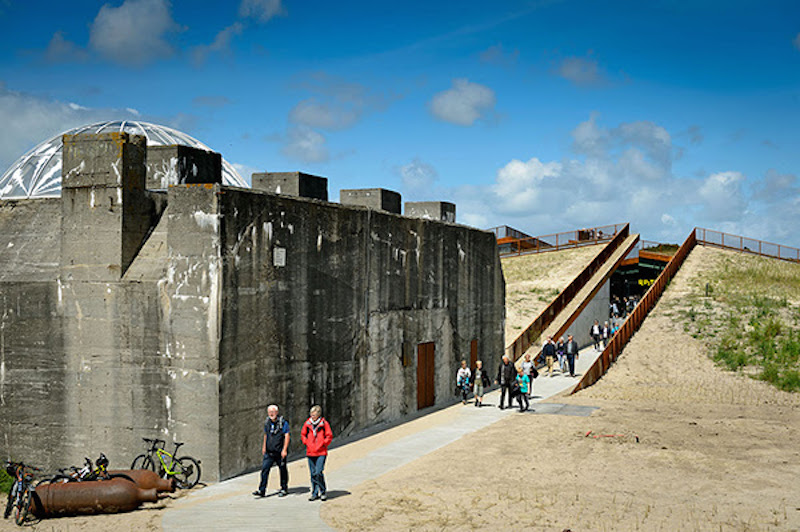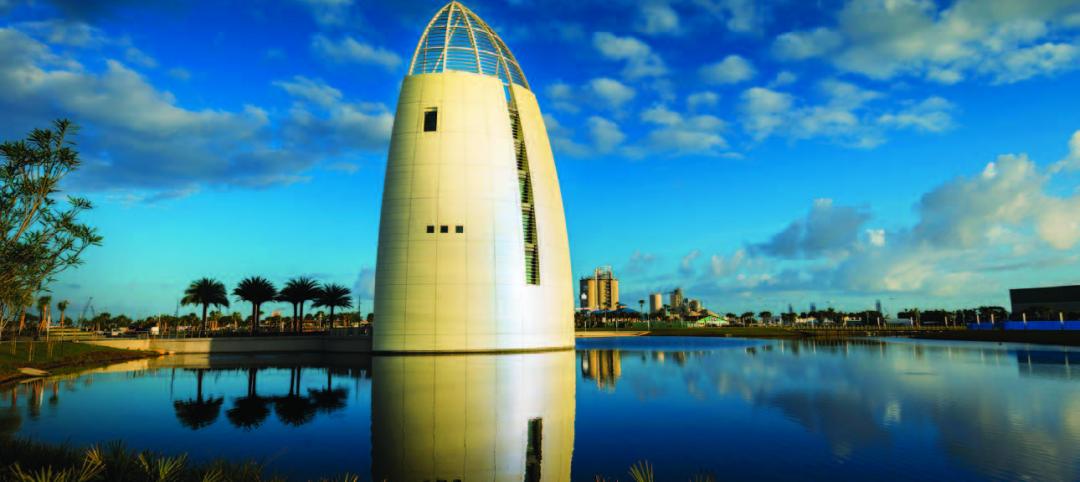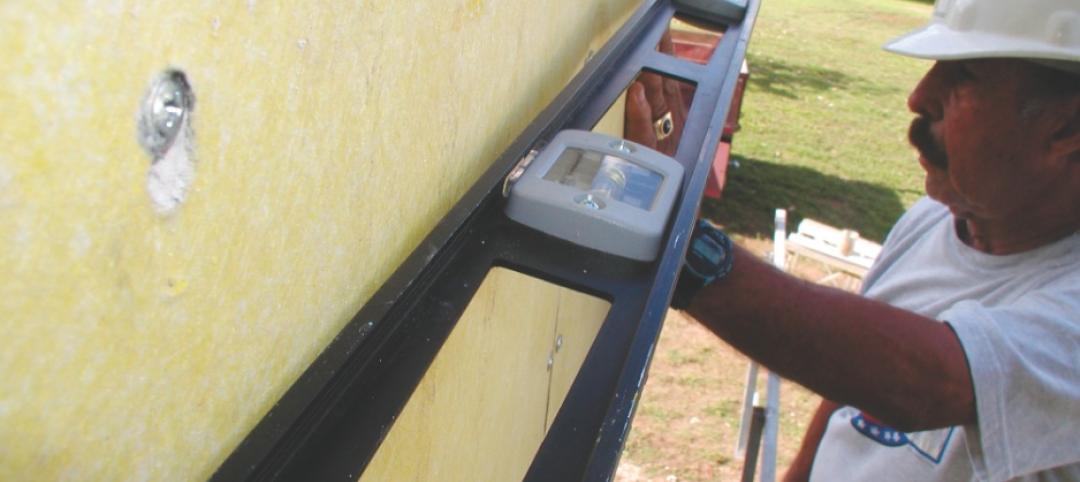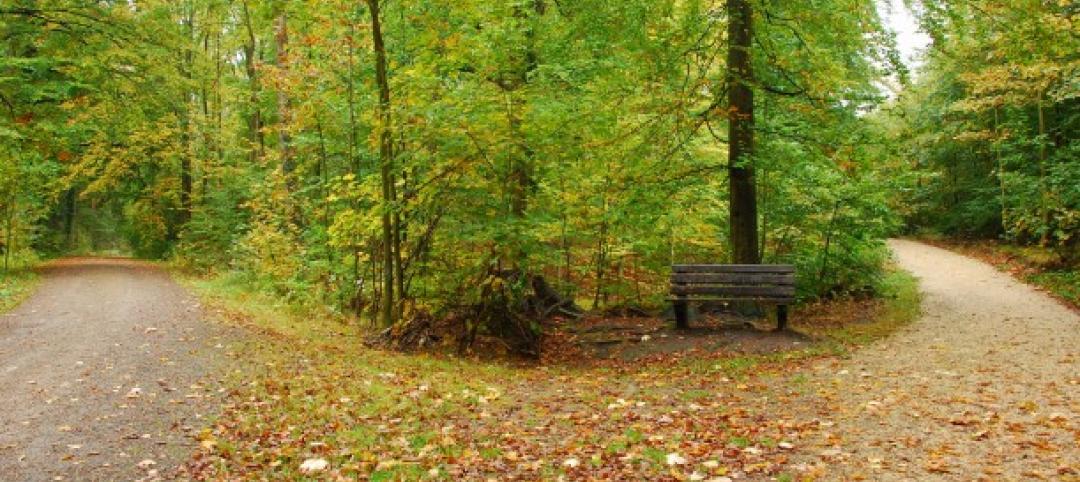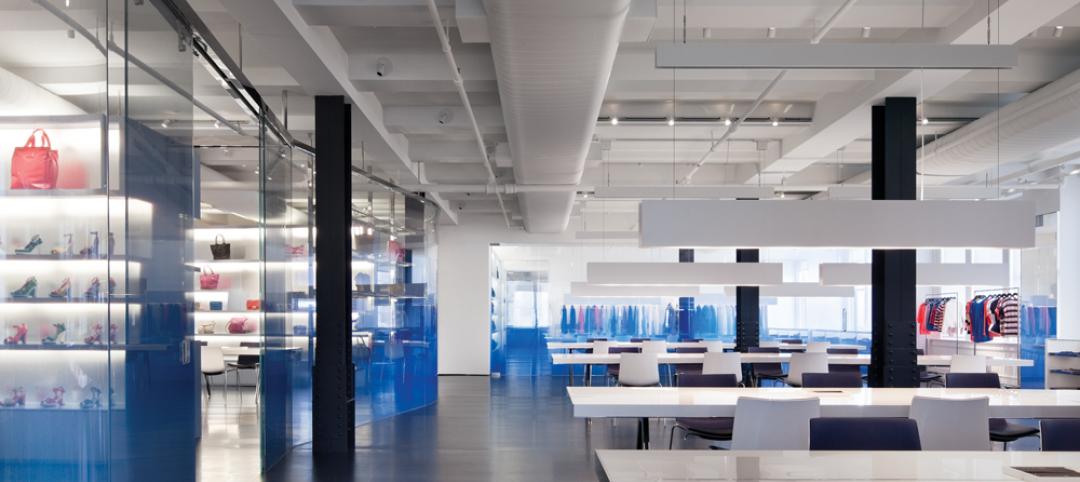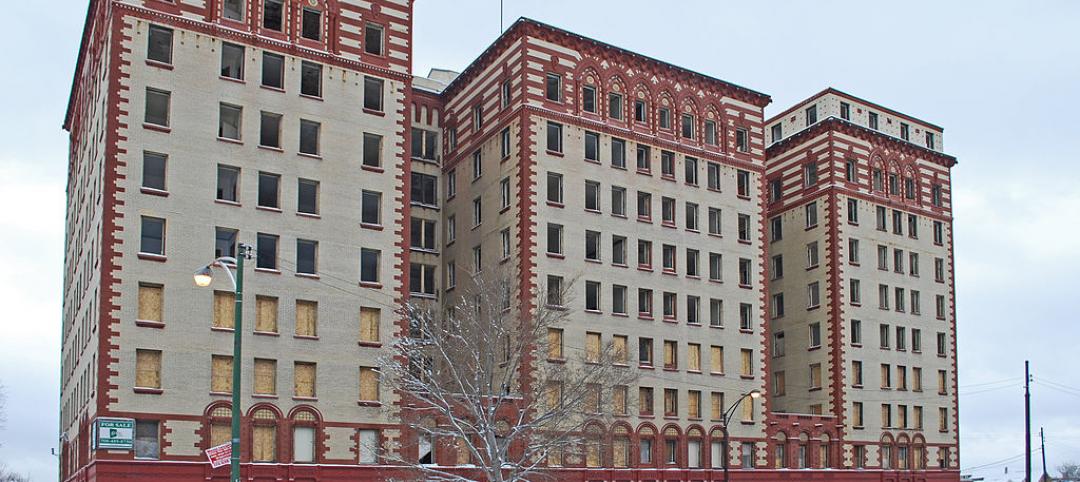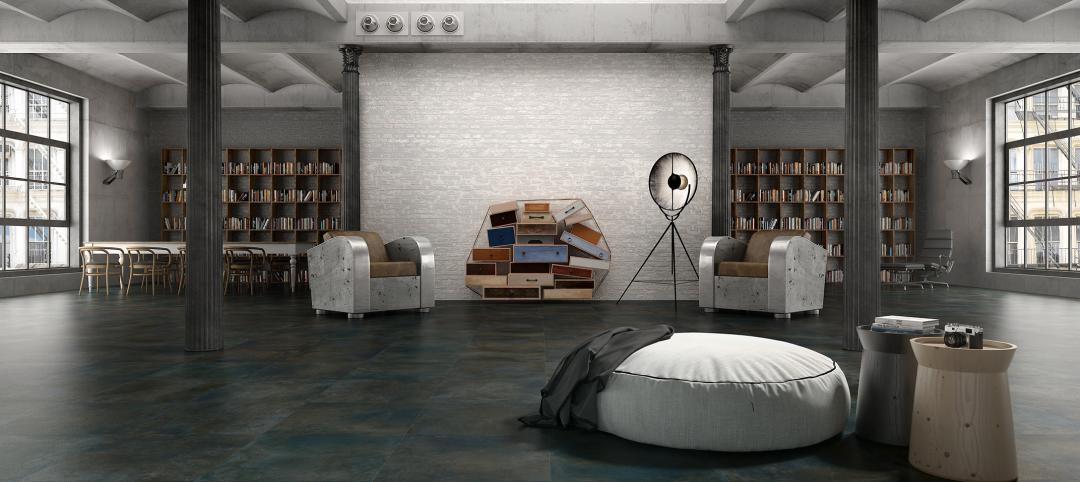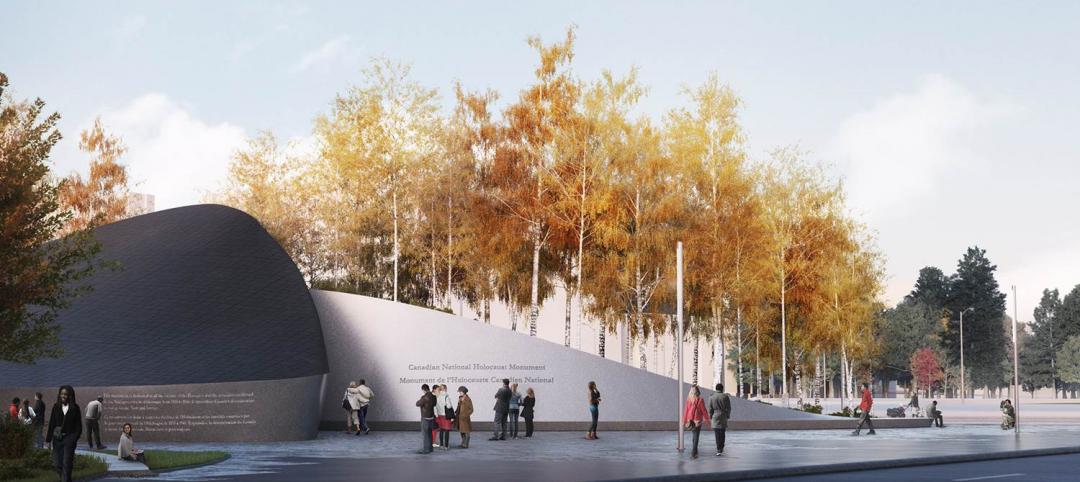Bjarke Ingels Group (BIG), in partnership with Varde Museums and Tinker Imagineers, has transformed and expanded a historic German World War II bunker into a 2,800-sm (30,138-sf) cultural complex called TIRPITZ, embedded into the protected shoreline of Blåvand along Denmark’s western coast.
The facility, which opened earlier this month, expects to attract 100,000 visitors annually. It is designed as a subtle counterpoint to the stark construction of the original artillery fortress.
The complex appears at the intersection between a series of landscape cuts. Its exterior paths cut into the dunes, and descend into a central clearing that brings daylight and air into the complex.
Six-meter-tall glass panels face an outdoor central courtyard that provides visitors with access into three permanent and one temporary underground galleries, designed by Tinker Imagineers.
These include “Army of Concrete,” which recounts human stories against the backdrop of Hitler’s massive defense project, the Atlantic Wall, of which this bunker was a component. “Gold of West Coast” purports to be Western Europe’s most comprehensive exhibit of amber, presented in a forest-like setting complete with recreations of 40-million-year-old trees weeping resin. And “West Coast Stories” re-enacts 100,000 years west coast history, and turns into a nighttime 4D theater twice an hour.
The walls of the exhibition rooms are made of concrete that was cast onsite. They support roof decks—engineered by the Swiss firm Lüchinger+Meyer—that cantilever out by 36 meters. The largest roof deck weighs nearly 1.1 tons.
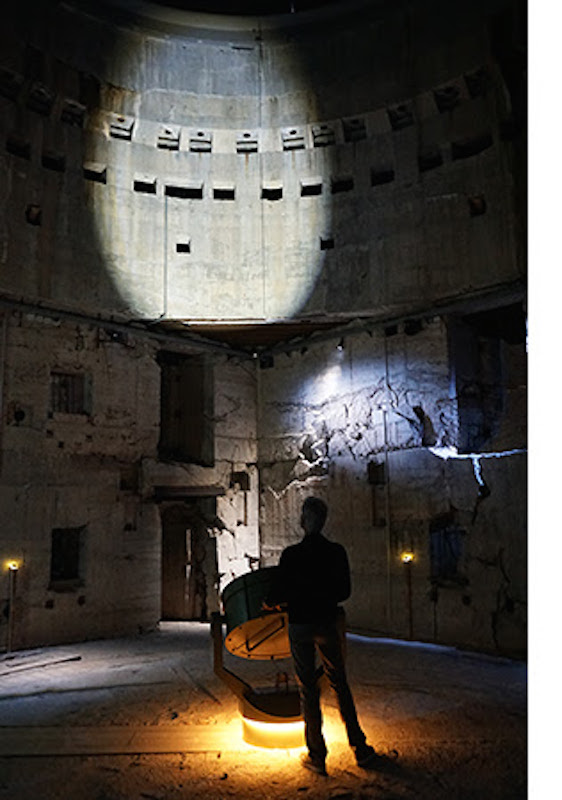
Visitors can access the inside of the bunker through a tunnel that connects it to the underground gallery space. Image: Erik Bar
From the sunken galleries, visitors access the bunker through a tunnel. In the dark, they can play with light and shadowing that reveal how the bunker once functioned.
“TIRPITZ is a unique opportunity to combine nature and culrture in a spectacular fashion,” says Erik Bär, Tinker Imagineers’ Partner and Director.
The Building Team included AKT, Kloosterboer Décor, BIG IDEAS, Fundendt, COWI, Svend Old Hansen, Gade & Mortenson Akustik, Bach Landskap, Ingeniøgruppen syd, Kjæhr & Trillingsguuard, and Pelcom.
TIRPITZ bunker in Denmark began construction in 1944 as part of Hitler’s Atlantic Wall defenses that stretched from Nordkapp, Norway, to the Pyrenees. It was meant to protect the sea route to Esberj harbor. The war ended before the bunker was completed, and it was converted into a small museum.
Seventy years later, construction of the TIRPITZ cultural center commenced. Its financiers include A.P. Møller and Chastine Mc-Kinney Møller Foundation, Nordea Foundation, Augustinus Foundation, and Varde Municipality.
Related Stories
| Mar 26, 2014
Zaha Hadid's glimmering 'cultural hub of Seoul' opens with fashion, flair [slideshow]
The new space, the Dongdaemun Design Plaza, is a blend of park and cultural spaces meant for the public to enjoy.
| Mar 25, 2014
Sydney breaks ground on its version of the High Line elevated park [slideshow]
The 500-meter-long park will feature bike paths, study pods, and outdoor workspaces.
Sponsored | | Mar 21, 2014
Kameleon Color paint creates color-changing, iridescent exterior for Exploration Tower at Port Canaveral
Linetec finishes Firestone’s UNA-CLAD panels, achieving a one-of-a-kind, dynamic appearance with the first use of Valspar’s new Kameleon Color
| Mar 20, 2014
Common EIFS failures, and how to prevent them
Poor workmanship, impact damage, building movement, and incompatible or unsound substrate are among the major culprits of EIFS problems.
| Mar 13, 2014
Do you really 'always turn right'?
The first visitor center we designed was the Ernest F. Coe Visitor Center for the Everglades National Park in 1993. I remember it well for a variety of reasons, not the least of which was the ongoing dialogue we had with our retail consultant. He insisted that the gift shop be located on the right as one exited the visitor center because people “always turn right.”
| Mar 12, 2014
14 new ideas for doors and door hardware
From a high-tech classroom lockdown system to an impact-resistant wide-stile door line, BD+C editors present a collection of door and door hardware innovations.
| Mar 7, 2014
Chicago's 7 most threatened buildings: Guyon Hotel, Jeffrey Theater make the list
The 2014 edition of Preservation Chicago's annual Chicago's 7 list includes an L station house, public school, theater, manufacturing district, power house, and hotel.
| Mar 5, 2014
5 tile design trends for 2014
Beveled, geometric, and high-tech patterns are among the hot ceramic tile trends, say tile design experts.
| Mar 4, 2014
First look: Historic grain silo to become soaring art gallery
British architect Thomas Heatherwick has proposed to repurpose a grain silo into an art gallery in Cape Town, South Africa. The silo is made up of 42-concrete tubes, which Heatherwick plans to make into gallery spaces.
| Feb 28, 2014
Six finalists selected in design competition for Canadian Holocaust monument
David Adjaye and Daniel Libeskind are among the finalists for the National Holocaust Monument, planned near the Canadian War Museum in Ottawa.


